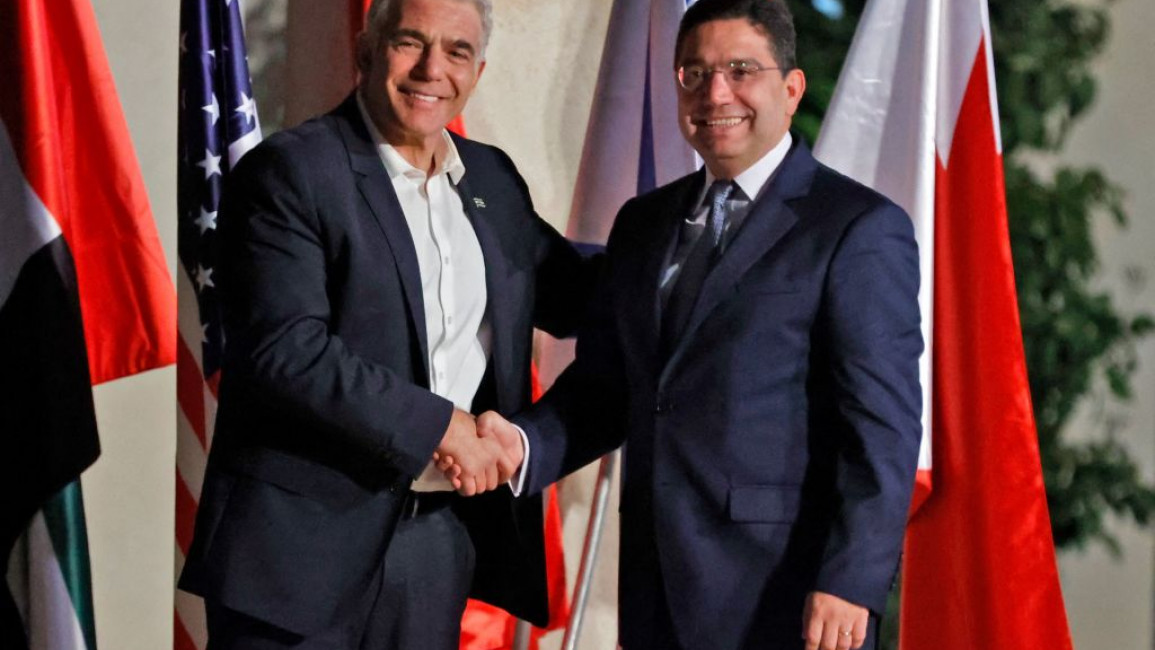Negev Summit: Israel backs Morocco's autonomy plan in Western Sahara
Israeli foreign minister Yair Lapid announced on Monday that Israel backed Morocco's autonomy plan in Western Sahara, during the first official visit of the Moroccan kingdom's foreign minister to Tel Aviv.
On the sidelines of the Negev summit, Lapid hailed Spain's recent decision to support the Moroccan autonomy plan as a "positive development".
Earlier in March, Madrid voiced its support for Rabat's autonomy plan in the disputed territory of Western Sahara, over which both the Algeria-backed separatist movement Polisario Front and Morocco claim sovereignty and “historical right" over. This was an unprecedented move by Spain, which sought for decades to appear neutral in the dispute over its former colony.
In 2006, Morocco presented its autonomy plan regarding the territory, which is supposed to allow Sahrawis to run their affairs "democratically" through legislative, executive, and judicial bodies, while Rabat retains control over the defence and foreign relations.
For its part, the UN has backed the plan but the Polisario Front, which continues to call for an independent state for Sahrawis, rejected Rabat's proposal to date.
Lapid, who chaired the Negev summit, also released a statement stressing that all countries represented at the Arab-Israeli gathering would work together to counter "attempts to weaken Moroccan sovereignty and territorial integrity.”
US, Emirati, Bahraini, Egyptian, and Moroccan foreign ministers attended the two-day summit to enhance cooperation with Tel Aviv and shore up the Abraham Accords.
US Foreign Minister Antony Blinken also renewed his country's endorsement of Morocco's autonomy plan during the Arab-Israeli gathering, describing it as "serious, credible, realistic, and a potential approach to meeting the aspirations of the people of Western Sahara".
Late in 2020, Washington recognised Rabat's sovereignty over the disputed territory in exchange for the Moroccan kingdom's normalisation with Israel. The deal evoked condemnation from Sahrawis and world powers alike.
Despite playing a vital role in convincing Rabat to publicly establish ties with Tel Aviv, the Israeli state remained silent on the dispute over the territory, at least until this past Monday.
A Moroccan political expert, who requested anonymity, told The New Arab that Israel's shift may speed up the normalisation process between the two countries.
"Tel Aviv's silence on the conflict was not an encouraging position for Morocco, which has been in a continuous diplomatic brawl to gain powerful countries' support for its cause," said the expert.
Rabat may also seek to further pressure Israel to join the US position and recognise Morocco's sovereignty over the territory, according to the expert.
"Israel is not the most credible state to decide on territory issues considering its history of apartheid, which is why I doubt that Tel Aviv will risk an international backlash to satisfy Rabat," added the Moroccan expert.
The UN formally recognises neither Moroccan nor Polisario Front sovereignty over the disputed territory of Western Sahara.
In 1991, the UN established a peacekeeping mission in the region to monitor a ceasefire and organise a referendum on the territory's status. The vote was set for 1992 but was aborted when Morocco refused to accept any vote that allowed for the independence of the territory, saying that only "autonomy" was on the table.
Since then, numerous UN-sponsored talks have failed to make a breakthrough, with each side further entrenching its positions.



